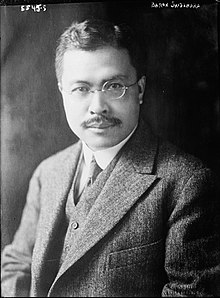
Kijūrō Shidehara: A Legacy of Peace and Diplomacy in Japan's Transformative EraKijūrō Shidehara (幣原 喜重郎, Shidehara Kijūrō) was a prominent Japanese
diplomat and politician who served as the Prime Minister of Japan during
a critical period in the nation's history. Born on September...